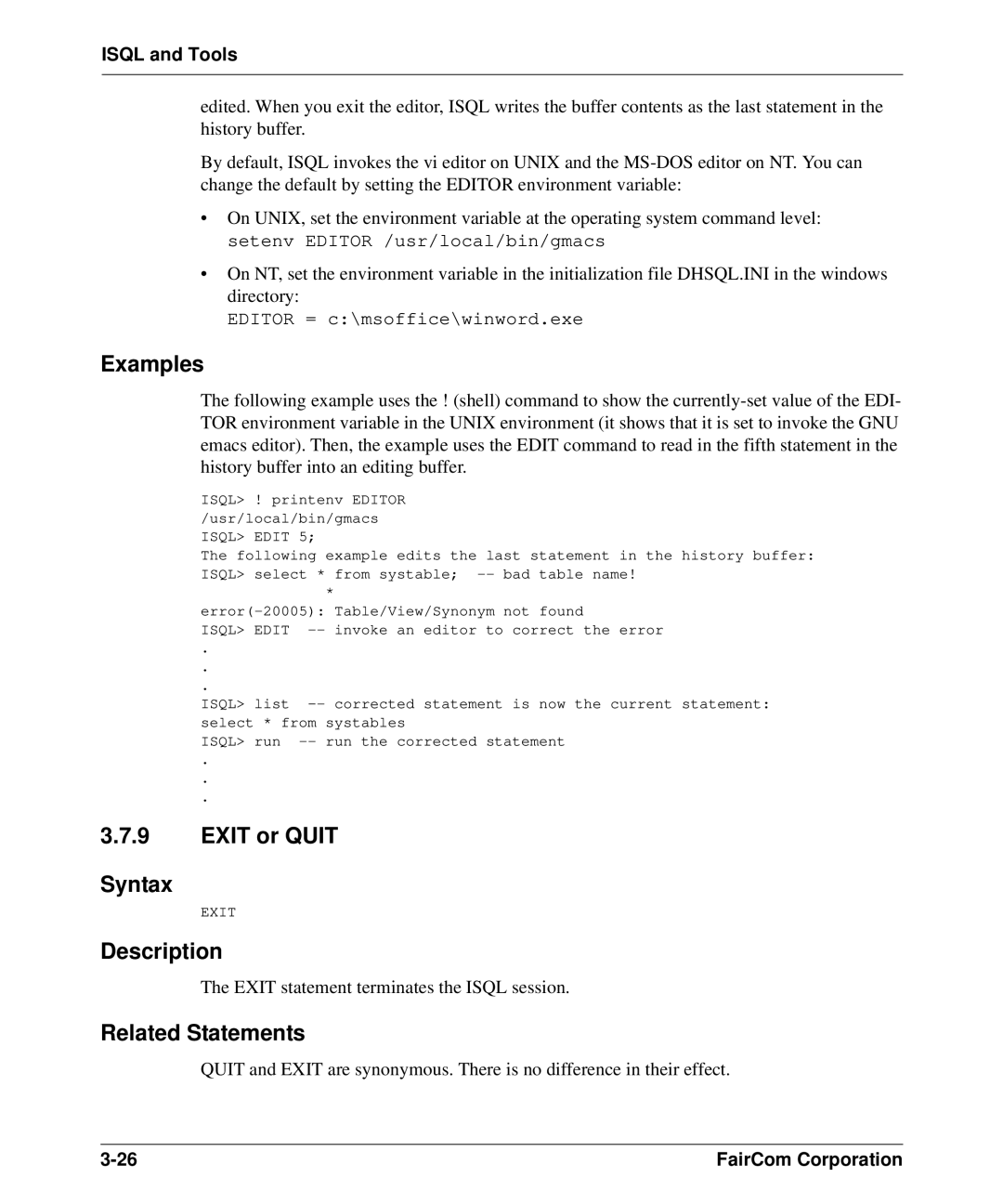
ISQL and Tools
edited. When you exit the editor, ISQL writes the buffer contents as the last statement in the history buffer.
By default, ISQL invokes the vi editor on UNIX and the
•On UNIX, set the environment variable at the operating system command level: setenv EDITOR /usr/local/bin/gmacs
•On NT, set the environment variable in the initialization file DHSQL.INI in the windows directory:
EDITOR = c:\msoffice\winword.exe
Examples
The following example uses the ! (shell) command to show the
ISQL> ! printenv EDITOR /usr/local/bin/gmacs ISQL> EDIT 5;
The following example edits the last statement in the history buffer: ISQL> select * from systable;
*
ISQL> EDIT
.
.
.
ISQL> list
ISQL> run
.
.
.
3.7.9EXIT or QUIT
Syntax
EXIT
Description
The EXIT statement terminates the ISQL session.
Related Statements
QUIT and EXIT are synonymous. There is no difference in their effect.
FairCom Corporation |
